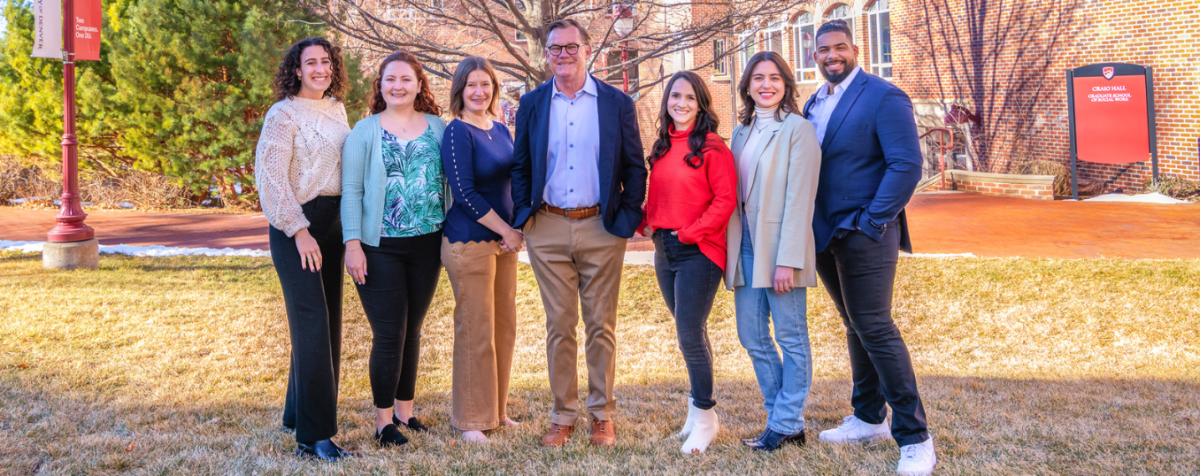Research Seminar Series
IHAC’s Research Seminar Series is part of our commitment to sharing knowledge within the field of human-animal-environment interactions. The quarterly seminars feature a wide variety of speakers and topics with an emphasis on social justice issues.
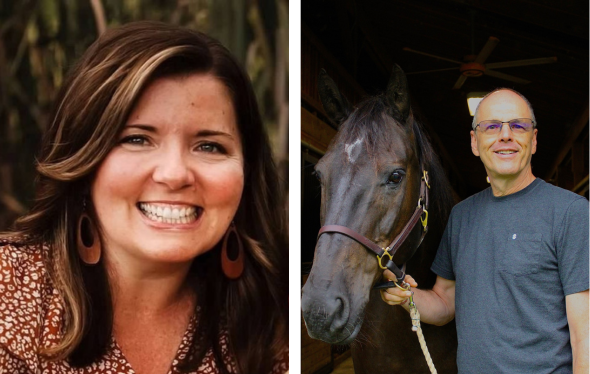
February 25
Green Chimneys: The Evolution of a Nature-Based Program
Since 1947, Green Chimneys has operated an education and therapeutic program for children with special needs on a farm surrounded by nature and hundreds of animal species. For over 20 years, Kristin Licardi (Chief Clinical Officer) and Michael Kaufmann (Vice President of Nature Based Programs) have worked to continually adapt and evolve best practices for the current student population and a large number of farm animals, equines, dogs, and wildlife.
In this seminar, learn how research data gathered over a decade-long relationship with the Institute for Human-Animal Connection informs the current program and strategic directions at Green Chimneys. We will consider how the concept of “social license to operate” has brought about new ethical challenges and has deepened the focus on animal welfare in this therapeutic program. Kristin and Michael will share perspectives and illustrate how theory and practice inform each other in a model program that continually strives to improve.
- 11 AM MT
- In-person and Zoom

Past Research Seminar Series Speakers
2025 Research Seminar Speakers

Adopters Welcome: A Framework for Removing Barriers to Pet Adoption
Lindsay Hamrick, Director of Shelter Outreach for Humane World for Animals, spoke about the Adopters Welcome program, including its history, goals, and how research conducted by the Institute for Human-Animal Connection is helping to measure the impacts of barrier-free adoption on communities and pets.
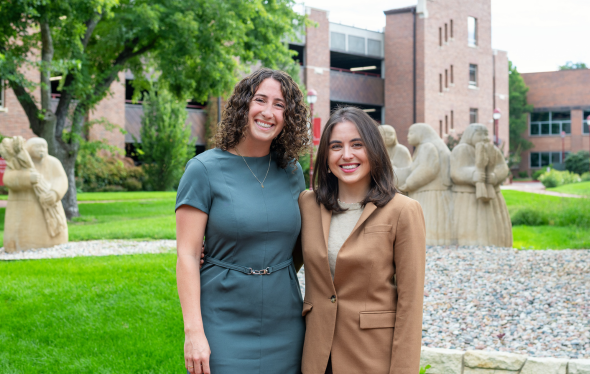
Drivers of Outcomes in Animal Control Enforcement
Researchers Liana Moss and Kaleigh O'Reilly presented findings from their portfolio of research that aims to understand current U.S. animal control policies and practices. This portfolio includes qualitative and quantitative studies on how animal control engages with the communities they serve. They highlighted IHAC's first-of-its-kind study of over 1 million animal control cases with national representation, and discussed the inextricable intersection of animal control, access to veterinary care issues, systemic racial bias in differential enforcement, and the urgent need to address these disparities collectively as a field.

Insights on Consequences of America's Affordable Housing Crisis on People, Pets, & Animal Shelters
Lauren Loney, a licensed attorney and public policy specialist, discussed a brief history of how we arrived at today's housing crisis, trends in pet relinquishment due to housing issues, policy solutions, and programmatic tools that may be most useful to mitigate the flow of beloved pets into animal shelters.
2022 - 2024 Research Seminar Speakers
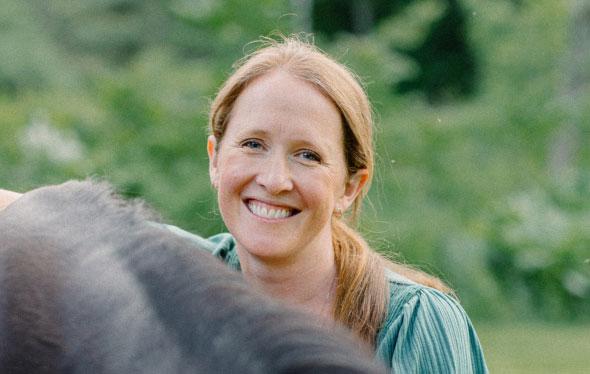
Developmental Science as a Tool for Understanding the Human-Animal Bond and Positive Youth Development
Dr. Megan Mueller, an Associate Professor of Human-Animal Interaction at the Cummings School of Veterinary Medicine at Tufts University, discussed how her research program takes a developmental science perspective to understanding the role of human-animal interactions in promoting positive youth development and how that can optimize relationships between people and the animals that share our lives.

Ending Labor Abuses at Sea to Achieve Sustainable Seafood: A One Health Perspective
In this talk, Dr. Jess Sparks described how novel approaches to overcoming the challenges associated with developing worker-driven metrics in seafood supply chains have been used to assess patterns in risks and occurrences of a range of indecent working conditions in marine capture fisheries, and their associated drivers, and how this data has been used to drive the policy and practice changes sought by workers.
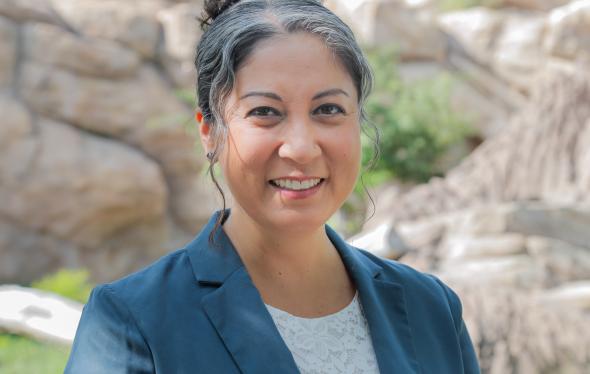
Big Conservation Energy: Activating the Change We Want to See
In this talk, Erica Elvove shared her story of building determination to maximize the power of the human-animal-habitat bond. She discussed the story of a growing movement to leverage the potential of zoo-based conservation impact for the good of the planet.

Advancing Racial Equity in Social Work for Human and Animal Well-Being
This presentation by Mueni Rudd discussed best practices for incorporating critical consciousness, community wisdom, and deep listening on human and animal well-being issues into social work research and practice. By inviting attendees to engage in reflection on colonial whiteness and racialized lived experiences, this presentation raised awareness and promoted action toward greater racial equity in the human-animal-environment interactions field.
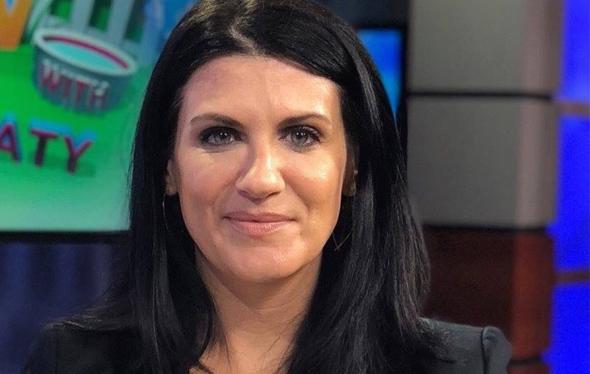
Access to Pet Resources: An Equity and Social Justice Issue
In this seminar, Amanda Arrington discussed the connection between animal welfare and social justice and how inequity in access to pet resources is being addressed in underserved communities.
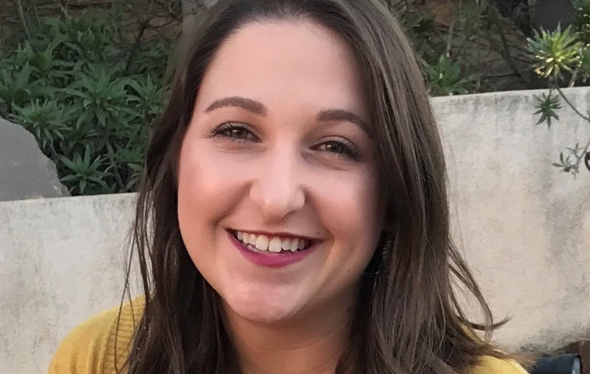
PTSD Service Dogs for Military Veterans: What are they, what do they do, and are they effective?
PTSD service dogs are becoming increasingly popular for military veterans with PTSD. But what exactly do they do, and are they effective at treating PTSD? In this talk, Dr. Kerri Rodriguez discussed her research in this field, going over current findings on how PTSD service dogs benefit the health and well-being of post-9/11 military veterans as well as future directions of study.
